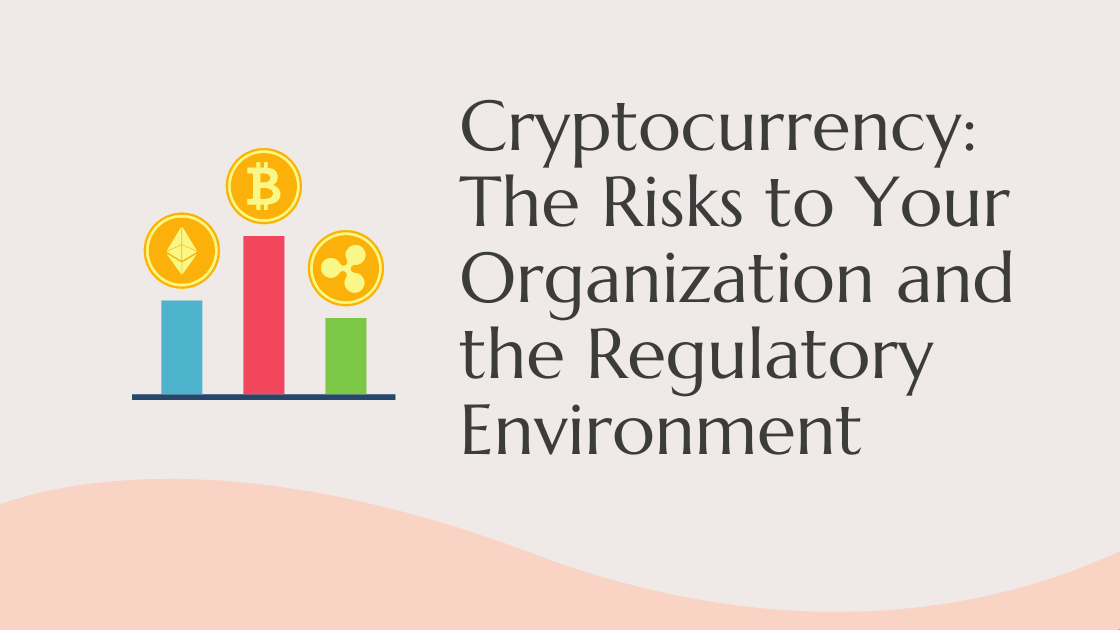In the open market, it may be used to pay for goods and services as a kind of decentralized digital currency. There are several different ways to get your hands on crypto cash. This blog is aimed to elaborate on the argument initiated in my prior post: Cryptocurrencies: The go-to guide. There are several dangers linked with cryptocurrency.
As the usage of cryptocurrencies increases, so does the threat to the financial services industry. Therefore, fraud losses might be increased, and regulatory compliance would suffer. AMLA 2020 mandates that cryptographic assets must also be subject to the Bank Secrecy Act (BSA), which is now explicitly required for usage with digital assets.
This new regulation has yet to be adequately implemented by regulators. In the meanwhile, the financial services industry may take a variety of actions to ensure that requirements are followed.
Risks to the financial industry
The widespread use of cryptocurrency is jeopardized by lax anti-money laundering and anti-fraud measures on crypto exchanges. There are various causes for this:
- At this time, no EDD checks are required for ATMs or crypto exchanges.
- AMLA 2020 recommends that crypto exchanges be classified as MSBs, yet crypto does not fit neatly into the current legal system. Additionally, MSB-classified crypto exchanges and ATMs may handle anonymous transactions of up to $1,000. Clients who spend more than $1,000 on a single crypto exchange are only allowed to give up their phone number or email address. As a result of this, smurfing and other traditional techniques of money laundering may be swiftly and anonymously transported throughout the blockchain.
- They don’t exactly fit the definition since they operate more like a bank than an MSB. In contrast to the old government-issued fiat money, like as the U.S. dollar, a new digital currency is created in exchange for it.
- Financial compliance professionals and cryptocurrency exchanges have a poor understanding of one another. As a consequence, financial wrongdoing may be aided and accidentally ignored. As a result, shady behavior may result as a result of putting profit above AML and fraud reporting.
- Smuggling in cryptocurrencies isn’t only a problem in the United States. The U.S. Department of Treasury has announced the Suex OTC sanctions addendum as part of a bigger attempt to curb crimes in the crypto sector.
How can you minimize the risks?
It is possible to deploy a variety of detection and compliance measures to help law enforcement restrict the flow of illegal cash via crypto exchanges and ATMs.
The first step in mitigating fines is vetting your customers, whether they are commercial or personal (as required by law). Sanctioned and high-risk nations should constantly be given special attention. Besides sanctions screening, the institution should do thorough due diligence on all new customers. The following items are included in a thorough investigation:
- Conducting a comprehensive KYC/KYB
- Obtaining a share of a company’s equity
- Examining public documents for signs of fraud
- Inquiring into the details of a transaction
- An unfavorable media screening
Recruit onboarding and investigations are just two instances of how you might help law enforcement while benefitting your own company. Clear® investigative solutions may be able to address all of these concerns. Criminal records, fines, lien payments, court judgments and general identity verification data may all be used to quickly assess a consumer’s financial risk. Clients with a high risk of fraud, money laundering, or merely a bad media reputation may be monitored.
Another problem with crypto is that regulators are unfamiliar with it, as we’ve already proven. Nowadays, students have a wide range of options when it comes to their education. There are a number of internet sites that may aid you in keeping up to date with the legislation that govern the Bitcoin industry. Firms looking into the misappropriation of public funds may utilize forensic methods including blockchain forensics, attribution software, and link analysis. This may help your business save time and money by making it easier to determine which exchange or ATM was utilized.
Future legislation will clarify the existing uncertainty in crypto rules. It is essential to have a strong compliance programme in place, even if you keep up with standards and enforce them. Working groups are now being created to deal with the issue of cryptographic crime, which is now a hot topic. The Cryptocurrency Compliance Cooperative is a group of ATM providers, exchanges, law enforcement, and tool companies working together to avoid illegal crypto usage.








